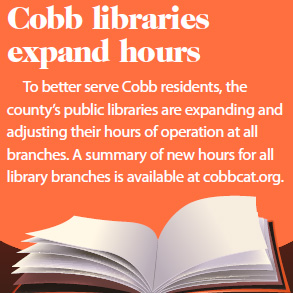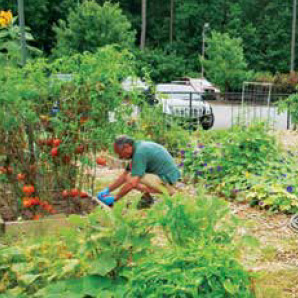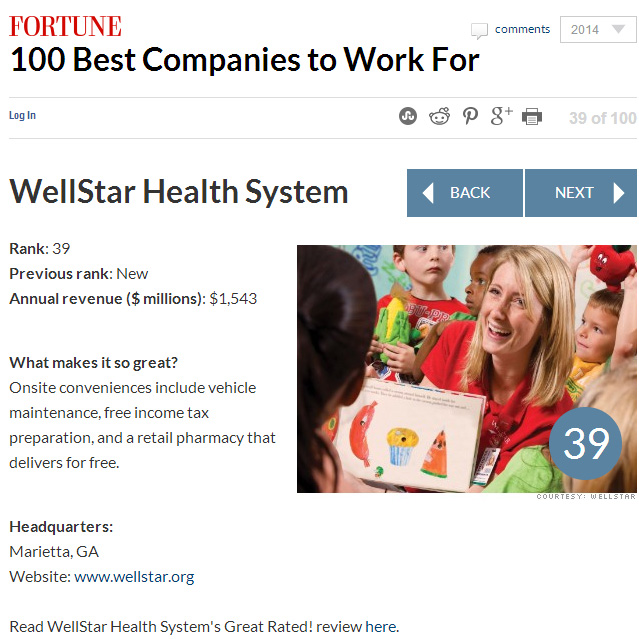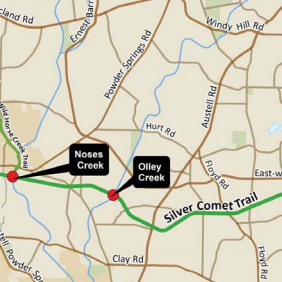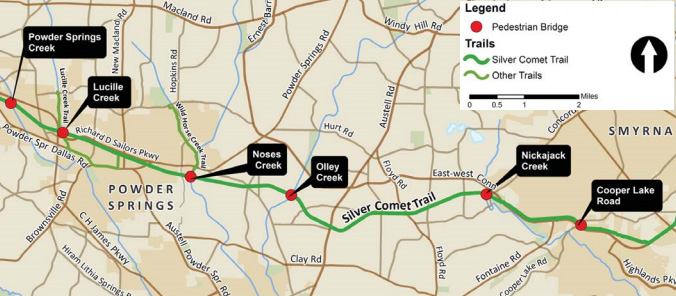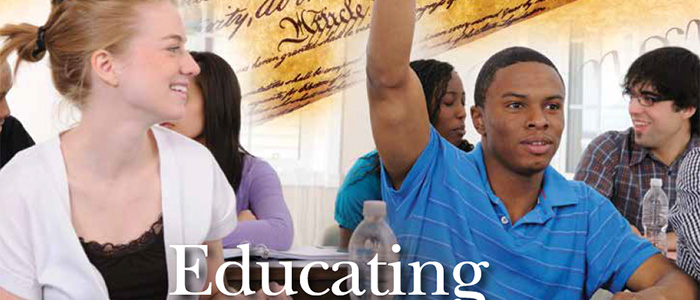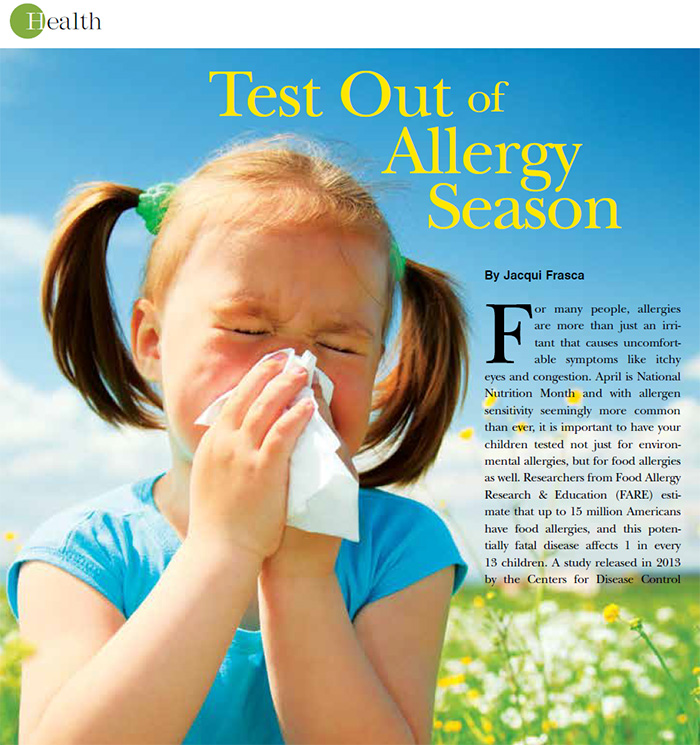The dawn of the new millennium has been one of the most interesting times in Cobb County’s storied history. Beginning on the heels of the record real estate and population growth that characterized the 1990s, the last 14 years have brought the county sky-high home prices, followed by a cataclysmic recession and, eventually, signs of resurgence after years of economic contraction.
As Cobb moves further away from the recession, it is clear that the state of the county remains strong for the foreseeable future. Though it may not be growing at the unbridled pace seen in the last century, Cobb has matured and grown into its promise, diversifying its population and roster of industries, as well as providing an unmatched quality of life.
A Period of Great Growth
“Historically, Cobb has been one of the fastest growing parts of the state in terms of population and employment opportunities,” says Roger Tutterow, a professor of economics at Mercer University and a long-time Cobb resident. “In the 1970s, Lockheed (Martin Aeronautics) was the dominant employer and most people commuted to Fulton County for work, but as Cobb grew larger, professional opportunities diversified and now half of the county lives and works in Cobb.”
With a close proximity to Atlanta and two coastal seaports, as well as quick access to the world’s busiest airport and four major highways, businesses began flocking to Cobb in the 1980s and 1990s, and the population grew by 36 percent. “Businesses have relocated to the northern suburbs of Atlanta because of the quality of life, lower taxes, a lower cost of living and access to better schools,” Tutterow says. “As Cobb’s economy continued to diversify, the business activity relied less and less on a single employer, and now less than 15 percent of the county’s employment is in manufacturing.”
While Lockheed dominated the county’s early growth, the Cobb of today is a service economy driven by health care, retail and business services, as well as Fortune 500 companies like The Home Depot and NAPA Genuine Parts. Though two of the county’s biggest employers are the Cobb County School District and WellStar Health System, the area has become a haven for a diverse group of companies highly regarded in their prospective fields. “When we were established over 30 years ago, there was a lack of fragrance and flavor suppliers in the Southeastern United States,” says Cynthia Reichard, executive vice president of Marietta-based Arylessence, Inc. “Our location in Cobb County was strategically perfect for our emerging business. Today, as a company, we have grown from being a regional business to one that ships our products around the world.”
Maturing Over Time
As Cobb’s business community has diversified over the last few decades, so too has its population. “In 1980, Cobb County was your stereotypical white suburb, but by the 2020 census, Cobb may not have a majority white population,” says Thomas A. Scott, Cobb historian and professor emeritus of history at Kennesaw State University. “The county’s household income is $65,180, well above the state and national average, and that is a very positive trend because it shows that the county is diversifying while still remaining affluent. People of all races who can afford it are making the move to Cobb.”
According to U.S. Census figures, about 707,400 people lived in Cobb in 2012, up nearly 100,000 residents from 2000.Though many of the county’s neighborhoods were developed in the 1970s and 1980s, Cobb remains young and vibrant, with 25 percent of the population, or about 177,000 residents, under the age of 18, and a senior population well below the state average—nearly 69,000 who are 65 years and older. The county’s youth is bolstered by the presence of Kennesaw State, now the state’s fastest-growing university and its third largest college.
“We are definitely more diverse ethnically, which comes with population growth, and Baby Boomers continue to make up a large segment of the population,” says Don Sabbarese, a professor of economics and director of the Econometric Center at Kennesaw State. “However, Cobb County continues to attract people in that valuable 25-to-45 age range—people who are working and investing in the county for the long term.”
Like many metro Atlanta counties that grew by leaps and bounds in the boom years of the 1980s and 1990s, Cobb’s development has begun to level off, signaling a new period in the county’s lifecycle. “It’s somewhat normal in the dynamics of residential housing that as land becomes more scarce, it becomes more expensive,” Sabbarese says. “As a result, growth levels off and the economy shifts toward a more service-oriented economy.”
Mirroring a growth pattern seen in Marietta City Schools, the Cobb County School District added nearly 12,000 new students between 2000 and 2007, but less than 3,000 students were added to the rosters in the intervening years. Marietta now serves about 8,800 students and Cobb 110,000. And while 100,000 residents have moved to Cobb in the 21st century, no new schools have been built since 2007, signaling that the county’s great migration has largely ended.
“Cobb was one of the fastest growing counties in the state between the 1970s and 1990s, but the county has since filled in and the economy is not as much driven by residential construction and people moving to live here,” Tutterow says. “There are a very few large tracks of land left for development, and though there is some re-gentrification and infill construction going on, Cobb’s economy is maturing and more focused on attracting businesses and creating exports than relying on residential real estate growth. The Cobb of the future will need to focus on creating goods and services and exporting them beyond its borders.”
Recession and Recovery
While the new millennium ushered in one of the strongest growth periods for residential and commercial construction in county history, the housing bubble and the collapse of the world financial markets in 2008 brought wave after wave of bad news to the county. “When you look at 2008 to 2010, Cobb County was hit pretty hard with large losses in construction and manufacturing jobs,” Sabbarese says. “Housing prices fell so the county had to tighten its belt and education got hit, which resulted in the loss of government jobs.”
During the boom times of the early 2000s, unemployment in the county was 2.8 percent, but as the downturn raged on, Cobb County’s unemployment rate surged to 8.1 percent.
“Like every major metro area in the country, Cobb experienced a pronounced downturn,” Tutterow says. “Since our economy was diversified and not as heavily based in real estate, the downturn was not as significant as the one experienced in other counties where new construction was the primary economic driver.”
While the recession technically ended in the summer of 2009, and Cobb’s unemployment rate has since reduced to 6.1 percent, the soft labor market has made for a slow recovery. “We have had really good job growth, but commercial and residential construction are nowhere near where they were before the recession,” Sabbarese says. “The greatest challenge is that there are still a lot of unemployed people who have been without jobs for a long period of time.” The number of people who filed for unemployment benefits increased from 11,603 in 2000 to 19,293 in 2007 and again to 29,554 in 2012, according to the most recent figures.
If there is any good news to emerge from the greatest financial crisis since the Great Depression, Cobb has experienced a modest recovery in its business services sector, as well as a small uptick in construction rates. Residential new home sales have improved and the tide of foreclosures has ended. As the good news about housing circulates through the market,” Tutterow says, “businesses will gradually expand their payrolls, which will create more clarity in the market and stimulate entrepreneurial activity.”
As the county’s financial outlook brightens, many local companies are looking to expand and capitalize on the assets Cobb has in spades. “As we look at all the factors that influence how a business like ours can grow and expand, we see no limit to our expansion in Cobb County,” says Reichard. Primed for growth, Arylessence is expanding manufacturing, building a new Quality Assurance facility and breaking ground on a new 60,000-square-foot Arylessence Research and Development Center, which will add 60 high-level science and technology jobs to the region over the next three years. “We continue to be a very efficient, competitive supplier to our customers because we control our costs effectively in Cobb and still deliver one of the highest levels of service in the industry,” says Reichard. “We have built Arylessence into a major player in the fragrance and flavor industry because, in a very significant way, we are based in Cobb County.”
A County Set Apart
As Cobb County’s operating budget has increased from about $410 million in 2000 to nearly $738 million in 2013, so too has its ability to affect change and respond to the diversifying needs of the county. “The county has a lot of positive factors, but one of the things that makes Cobb different is that it has always been cognizant of the needs of local business, which has allowed it to prosper for the last several decades,” Tutterow says. “Business and government work together because they understand that a highly competitive employment market is the key to success.”
In addition to having one of lowest millage rates in the metro area, Cobb has also benefitted from good leaders and surprisingly little corruption. “I can’t remember the last time a Cobb official or a school board member was indicted, which is something a lot of other counties can’t say,” Scott says. “We have surprisingly good government, good zoning and amazingly good leaders who try to keep taxes as low as possible.”
In his recent State of the County speech, Cobb County Commission Chair Tim Lee acknowledged the progress the county has made in the past year. “We began to see investment in Cobb County start to reach pre-recession levels with new home starts, remodeling and property values,” Lee stated. “All indications are that Cobb County has turned the corner and in 2014 we are on our way to very healthy levels for all revenue streams.” Ending the year with a surplus and strong cash reserves, Lee also noted that the county retains a Triple-A rating from all three ratings agencies, making Cobb one of only 39 counties in the nation to achieve such recognition.
Chairman Lee also mentioned the community’s investment in the $680 million Atlanta Braves baseball stadium, along with an accompanying $400 million investment in a walkable, mixed-use district neighboring the stadium. “With the announcement of the Atlanta Braves move to Cobb County, the whole world is watching us,” Lee stated. “They all want to know what the Atlanta Braves now know—that Cobb County is the place to do business.”
In 2013, the county gained 16 new businesses, including InfoSys and Talentei, more than 1,087 new jobs and investments totaling $41 million. The chairman reaffirmed his commitment to fiscally conservative budgeting, and added that Cobb is in a great position due to hard choices made during the economic downturn. “In order to reach great heights for the long term, we must continue to make the right choices for this county. Cobb County is still, and will continue to be, the best place to live, work, play and earn a world-class education.”
The New Face of Cobb
With a world-class business infrastructure and a diverse young population, Cobb County in the new millennium has also gained significant cultural capital with the arrival of the Cobb Energy Performing Arts Centre, which has lured top-notch performers and companies like the Atlanta Opera and the Atlanta Ballet to its stages. Renovations to Cumberland Mall and boutique retail pockets like The Avenues at East Cobb and West Cobb have made luxury shopping an everyday reality for Cobb residents, while the recent acquisition of the 100-acre Hyde Farm in east Cobb and a $40 million bond to purchase park land further enhances quality of life. “Cobb is a great place for people to live,” Reichard says. “The lifestyle, cultural, sporting and recreational opportunities are among the region’s best.”
Development around Kennesaw has also exploded in recent years, and the rural wilds of west Cobb have become large subdivisions and retail centers. Renovations abound in established neighborhoods like East Cobb, with second- and third-generation homeowners taking the lead, and younger generations are also transforming downtown Marietta and Smyrna into walkable, live-work-play communities. “Density has risen in recent years, but a large part of the county is still moderate density, with dominant population clusters around Cumberland Mall, Town Center Mall, Kennesaw State University and Marietta,” Tutterow says. “I continue to be very optimistic about the dynamic capacity of Atlanta’s prosperous suburbs. Cobb benefits from Atlanta’s business activity and Atlanta benefits from Cobb’s quality of life.”
Recognition and revitalization is also coming to the Cobb Galleria, one of the county’s first and largest business districts, as it prepares for the arrival of the Atlanta Braves and an accompanying entertainment complex that will bring new vibrancy, new revenue and new population streams to the county. “The last half of the 20th century was a very positive growth period for Cobb, and now there is renewed excitement—new colleges, new entertainment complexes and new populations are building an infrastructure and a quality of life for the future,” Scott says. “Whether we succeed in doing this, will depend upon how well we make our diversity work at every level—from the workforce to our schools. If we succeed, we’ll be a model for the entire country.”
South Cobb’s Resurgence
While south Cobb was overlooked as rapid prosperity graced the rest of the county, the region is now experiencing an unprecedented renaissance that stretches beyond the fame of its largest employer, Six Flags Over Georgia. “South Cobb has been underinvested and undervalued for many years, but a rebirth and resurgence is definitely happening,” says Ed Richardson, president of the South Cobb Redevelopment Authority. “South Cobb is close to the City of Atlanta, major railways and highways and it is one of the few places left in the county where land is still affordable.”
Guided by a simple three-word slogan, “Reimagine, Redevelop and Revitalize,” the South Cobb Redevelopment Authority is putting the area back on the map by creating low-interest bonds, a private land bank and Tax Allocation Districts that spur growth and new development. In a swift turnaround, millions of dollars in development are occurring along the Six Flags corridor, including three apartment buildings purchased by H.J. Russell & Co., and new development in Riverside Industrial Park, just south of the amusement park. Downtown Mableton is also coming alive with a new mixed-use towncenter concept, and Jamestown Properties is developing Riverview Landing, a picturesque residential community along the banks of the Chattahoochee River. Six Flags is also making its largest expansion in park history with the development of a new tropical waterpark called Hurricane Harbor, set to open in late May.
Undoubtedly though, this year’s headlines belong to the Word of Faith Family Worship Cathedral’s Riverside EpiCenter in Austell, the biggest project to grace south Cobb in a generation. The $33 million, 112,000-square-foot facility on Riverside Parkway features a 600-seat auditorium, conference rooms, a café and food court, a six-lane bowling alley and a youth center with an arcade, computer stations and recording and dance studios. Rounding out the list of amenities, the EpiCenter also includes a gym, a 40-foot rock climbing wall, an indoor track and a full-service health club with a hydrotherapy spa, massage rooms, saunas and steam rooms.
“This is the seven-year culmination of Bishop Dale C. Bronner’s vision of creating a multifaceted, multifunctional facility that is designed for every person and every walk of life,” says Patrick L. McGrew, the EpiCenter’s general manager. “The EpiCenter really focuses on wellness of the body and mind and it’s just a great, inclusive gathering place where you can get a cup of coffee, bowl or play basketball. It is the first facility of its kind—there is nothing like it in Cobb County or anywhere else in the Southeast.”
Published on: Apr 21, 2014
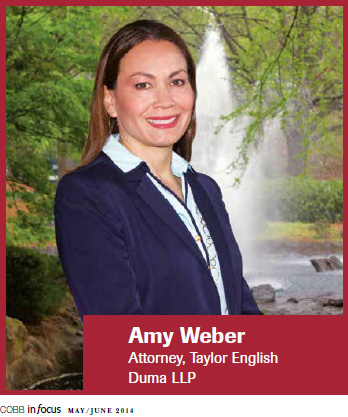 Attorney, Taylor English Duma LLP
Attorney, Taylor English Duma LLP









